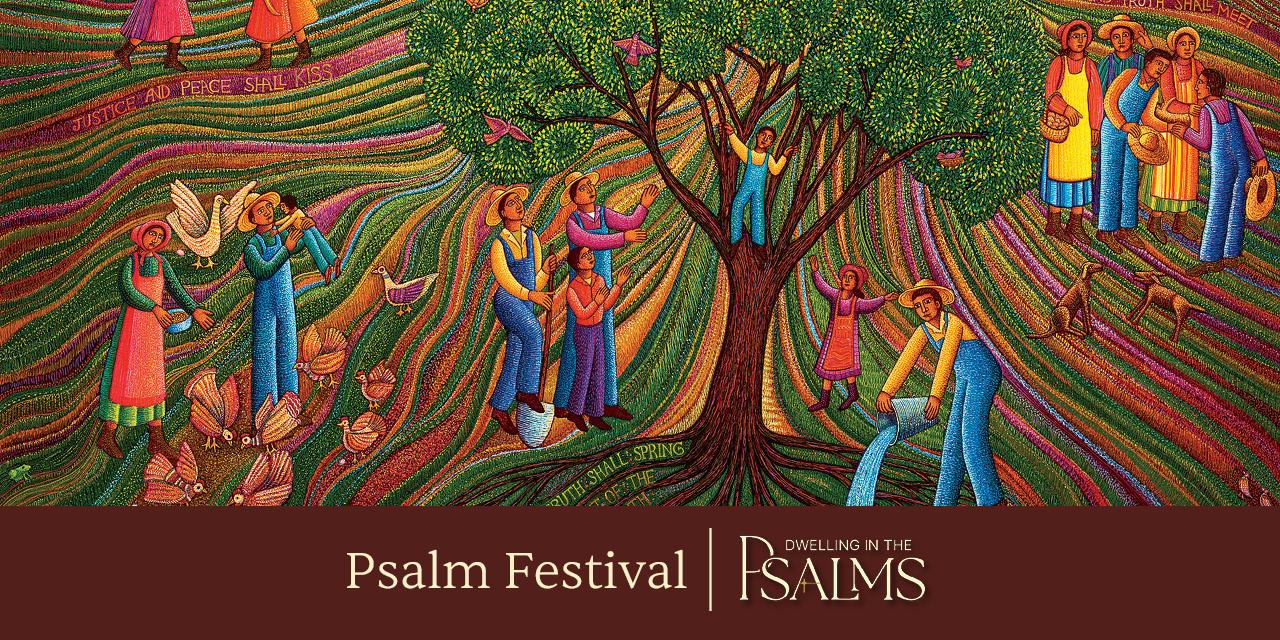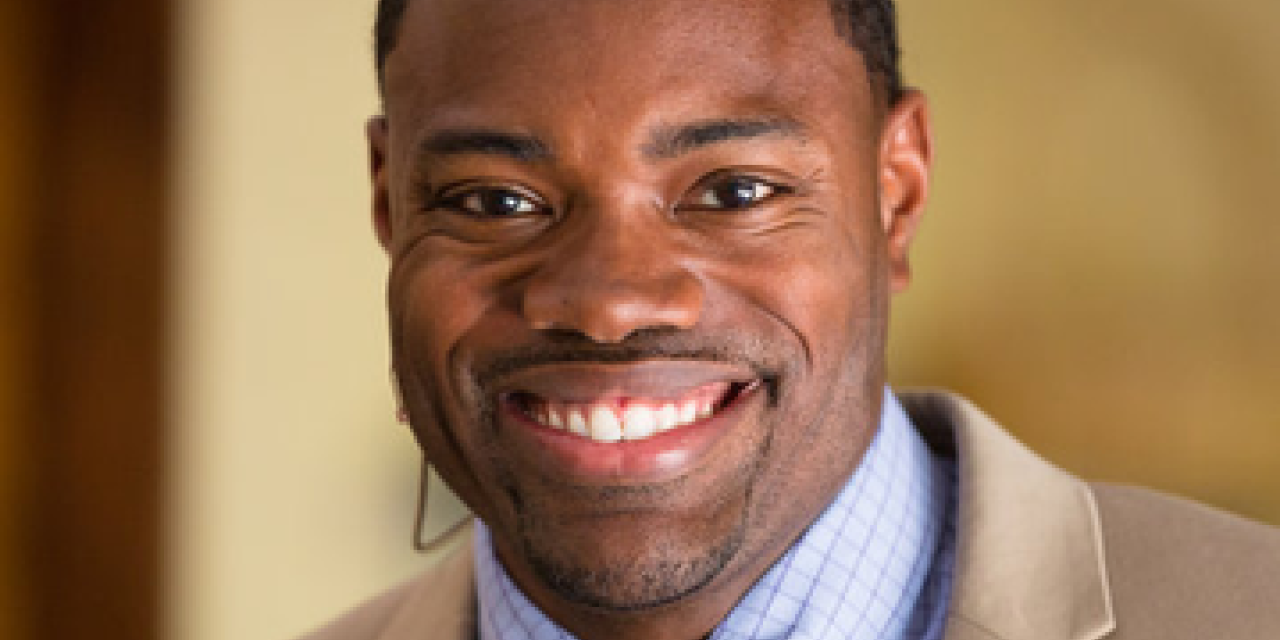Mika Edmondson is pastor of New City Fellowship, an Orthodox Presbyterian church in Grand Rapids, Michigan. He wrote The Power of Unearned Suffering: The Roots and Implications of Martin Luther King, Jr.’s Theodicy. In this edited conversation, Edmondson talks about how fellowship with God can help us transcend the intellectual problems of suffering and evil.
How do you define theodicy for non-theologians?
Theodicy deals with how we understand God’s goodness in light of the painful events in our lives. It’s a way to get our hearts and minds around suffering while still saying, “I know that God is good and able.” We’ve all been touched by undeserved suffering, whether during natural disasters, such as Hurricane Harvey or Hurricane Irma, or moral evil, such as structural injustice or human trafficking. In my book, I talk about Dr. Martin Luther King Jr.’s approach to moral evil, particularly how to understand God’s goodness and power in light of the painful experiences of African Americans.
How can unearned suffering be redemptive?
King distinguished between engaging with suffering and suffering itself. Suffering itself is not a good. It came about because evil, sin, and death have come into the world. But their presence provides a way to engage in suffering that brings glory to God.
There was no greater atrocity in all the world than when Jesus Christ—the innocent, righteous, perfect, sinless Light of the World, who only spoke truth and always loved people—was set up, falsely accused, tried in a sham trial, and tortured. His death on the cross was a lynching. And God allowed it. And Jesus Christ trusted that, through his choice to lay down his life, God would bring about redemptive good. Whenever Jesus talked about his coming death, he always also talked about his resurrection. He is the ultimate example of how God is able to bring about redemptive good through engagement with unearned suffering.
What are the choices for how to respond to unearned suffering?
When the temple guards come to arrest Jesus in the Garden of Gethsemane, we see multiple responses to suffering. Jesus’s followers respond in the two ways we’re naturally prone to respond. Peter retaliates with violence and cuts off the high priest’s servant’s ear. Other disciples, particularly an unnamed man who fled, respond with acquiescence. They see the evil and run.
Jesus Christ demonstrates a third way. He doesn’t respond in kind or flee. Instead he agapically (with self-giving love), self-sacrificially, and deliberately engages suffering to show God’s will and redemptive love. Jesus says that no one takes his life because he lays it down willingly as an act of love (John 10:7–18). He is an agent. This is tremendously liberating for us. We see that our victimization does not define who we are—though I am in no way dismissing the devastation of victims. It’s that we are not merely victims. In the midst of every form of suffering, God gives us agency to deliberately engage it and reflect God’s kingdom, will, and love.
What did Jesus’s disciples learn from his example of how to engage suffering?
Before the crucifixion, the disciples could not fathom that Jesus would bring about salvation through suffering. They thought he’d slaughter the Romans, overthrow the social order, and establish the New Jerusalem. Much later, in his first epistle, Peter talks to Christians in Asia Minor who are trying to make sense of their suffering and persecution. He points them to Jesus Christ (1 Pet. 2:21–25) and quotes Isaiah 53, which reveals the Messiah as one who, when reviled, does not revile in return. That is the example that God has revealed to his people to show us how we should walk in a world of suffering. The word translated as “example” in 1 Peter 2:21, is hupogrammos, which is a writing pattern to copy, sort of like a dot-to-dot for someone to trace when learning to write.
In his example of how to suffer, Jesus lays out this writing copy for us. He shows us how to pick up our cross willingly and engage suffering to the glory of God and for the good of our neighbors. He said, “In this world you will have trouble. But take heart! I have overcome the world” (John 16:33, NIV). Jesus also promised that even when we suffer, he’ll never leave or forsake us.
This revelation inspired King’s approach, helped undergird the nonviolent U.S. civil rights movement, and kept King going forward. He believed that the arc of the moral universe is long but bends toward justice
How did King prepare civil rights marchers to respond with nonviolence?
Civil rights participants had to undergo active training in nonviolence and make a spiritual commitment to pray daily and read the Bible. There’s tremendous temptation to strike back when peaceful protest is met with police beatings, attack dogs, and high-pressure fire hoses—even against women and children. The civil rights movement, with its bus boycotts, sit-ins, and Freedom Rides, was not passive. It exposed the latent evil that passes itself off as normalcy. It was extremely active and grounded in the idea of redemptive suffering. That’s why it made such strides toward freedom and dignity.
It takes tremendous poise, discipline, and spiritual grounding to keep focused on loving and responding well. Jesus Christ exemplifies this. As soldiers nail him to the cross, he prays for them. He ministers to a thief crucified next to him, giving him hope that he can come into the kingdom and be with God in paradise. In the midst of suffering, Jesus is still teaching and loving us.
Have you heard memories from people involved in the civil rights movement?
Our family, like many African American families, was deeply impacted by racialized sin. My grandparents were sharecroppers in rural Alabama, where they could never own land, just keep a small share of what they produced. One year they brought in the crop and the gentleman refused to pay them. He just stole their share. They realized they needed to move to a city, so they moved to Nashville, Tennessee. My grandfather had only a third-grade education but was able to form his own business and send his children to school.
My mom was in middle school during the 1963 March on Washington. She remembers watching it on black-and-white TV and hearing King give his “I Have a Dream” speech. Although my mom and her family didn’t directly participate in the Nashville sit-ins, they were deeply aware of all that was going on and made it a topic of deep prayer. They had a great stake in how it turned out.
Concepts like theodicy and redemptive suffering seem like cold comfort when God allows people to oppress others yet face little or no consequence . . .
Theodicy gives us partial answers. It attempts to grasp hold of God’s truth, yet it can’t tell us why God allowed 250 years of slavery; lynching of men, women, and children; or people continuing to be shot today. Sin is worse than we imagined. It touches on every area of life and goes down to the root of our lives, yet God’s redemption is deeper. Suffering will continue till Christ returns to consummate the work of making all things new. How it all works out it is a mystery.
King embraced that mystery in what has become known as his “kitchen vision.” It happened on January 27, 1956, about two months into the Montgomery bus boycott. He was used to threats but got a phone call that shook him to his core. The caller threatened to blow up his home, along with his wife and infant daughter. King realized he needed to experience God for himself. Pacing and praying all night, he told God how weak and afraid he felt. “At that moment I experienced the presence of the Divine as I had never experienced Him before,” King said. “Almost at once my fears began to go. My uncertainty disappeared. I was ready to face anything.”
A few nights later, his house was bombed, though no one was injured. A crowd of supporters gathered, ready to defend him with violence. King asked them to go home peacefully. “Remember what God said. . . . I want you to love our enemies. Be good to them. Love them and let them know you love them.”
LEARN MORE
Read Mika Edmondson’s book The Power of Unearned Suffering: the Roots and Implications of Martin Luther King, Jr.’s Theodicy. Read or listen to Mika Edmondson’s comparison of the U.S. civil rights movement and Black Lives Matter. Read his columns on Reformed African American Network.

